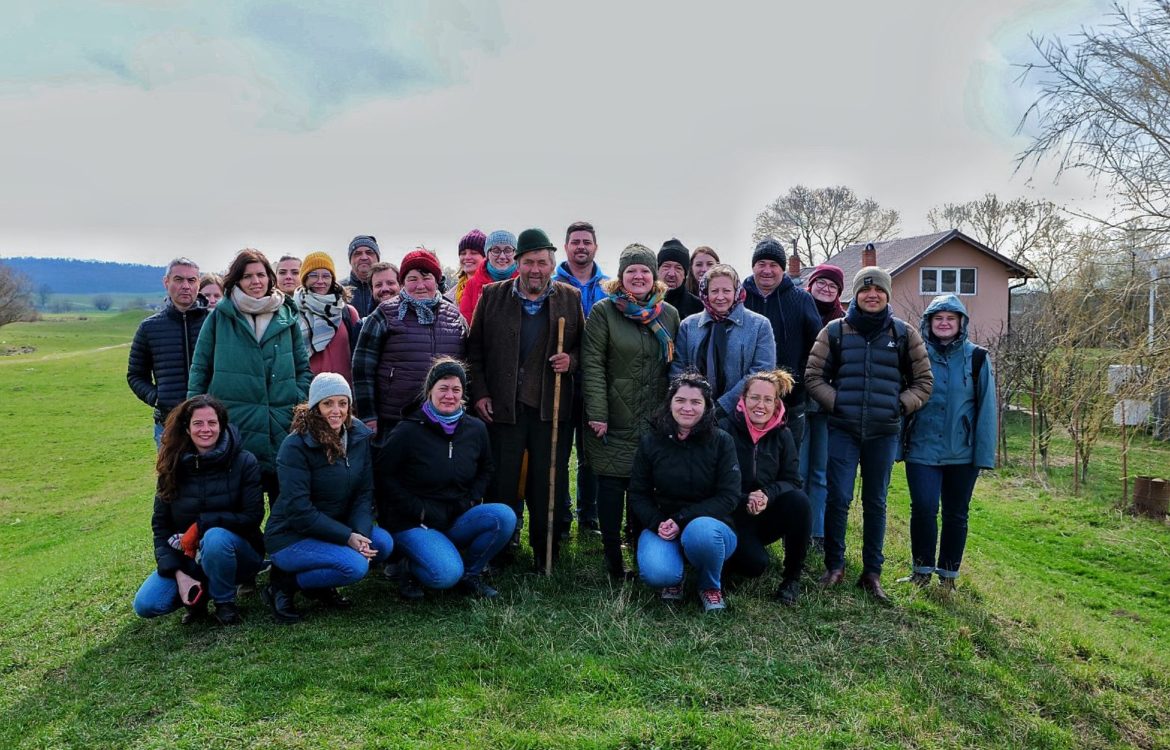
EUROPEAN THEMATIC NETWORK – FARMWELL PROJECT
Written by: Lorenzo Pagni, Lucia Palmioli, Silvia Rolandi
In recent years, the issue of well-being has become increasingly important for people across the globe, and this is reflected in the efforts of various governments and organizations to meet the Sustainable Development Goals. The social dimension needs to be implemented in all sectors.
One group that requires special attention, from the well-being perspective, are farmers, that, in recent times, have been facing a vast range of physical and mental health challenges. Given the complex socio-economic context in which they operate, addressing the challenges that represent an impediment to the achievement of their well-being, requires identifying the main issues and find innovative solutions that considering farmers’ specific needs and circumstances, help achieving the objective.
The FARMWELL EU project (number 101000797) began in January 2021 and aims at improving farmers’ mental, physical, and social well-being through social innovations. The project Partners are E40 Group, ILVO, Ferm vzw, BB, Coldiretti, AUTH, STEVIA, AKI, MSZFSZ, IRWiR PAN, KPODR, HCC, GAL Tinutul Barsei, New Heroes, UGLOS.
Each Member State identified a possible impediment to reach well-being and mapped existing and fitting social innovations and analyzed their social return on investment using the Social Return On Investment (SROI) methodology.
For Italy, the focus is on irregular work in agriculture, from both the farmer and the worker side. As we are running on the third year of project, there are several helpful documents that help understand the work conducted and the foundation of the choice made. Among other deliverables and documents, there is a new video recently released – Reap What You Sow – Ethical ways of fighting irregular work. The video, the one of a series where all different Partners’ conducted researches are collected, was introduced by New Heroes (one of the project partners) during the 3rd meeting of the European Thematic Network in Budapest on January 2023 and launched at the beginning of March.
The main purpose of the meeting was to stimulate a discussion on the issues and related social innovations in the respective national contexts, bringing together Partners and stakeholders. An activity was planned to fulfill this purpose, where members could participate in individual sessions in which the activities carried out by the respective country were explained in depth, and direct testimonies of those adhering to social innovations were reported.
The University of Pisa, in accordance with the Italian Partner, Coldiretti, invited to participate to the workshops two farmers, Giulia Jannelli from Germinale Cooperativa and Leonardo Rocchetti from Roc Farm Glasshouse, that previously contributed to the activities carried out during the Project, and Barbara Nappini, President of Slowfood. During her speech, she reflected on the origins of Slow Food as a response to the introduction of fast-food culture in Italy. She emphasized the significance of the link between our identity and what we eat. Throughout the group discussions, the themes of identity, awareness, and community emerged multiple times.
She believes this project is a move towards a fairer society, promoting a shift in perspective from competition to empathy and understanding for everyone, not just a select few.
By the end of the meeting, it was immediately clear how important it was to understand what social innovations are bringing to farmers regarding well-being. Direct discussions with stakeholders also made it possible to highlight the strengths and weaknesses of social innovations and their possible replicability in other contexts.
What emerged during the project’s first two years was discussed during our last partner meeting in March in Brasov, Romania.
The social innovations considered are indeed a tool aimed at increasing the well-being of farmers; in this sense, the SROI calculation showed a high potential for social return on investment.
FARMWELL also aims to describe the lessons learned during case study analysis and by returning a policy document aimed at civil society. In this regard, in addition to outlining the content of the activities that will be carried out in the coming months, the meeting helped determine how the document will be drafted.
The project’s next meeting is scheduled for September in Italy to discuss the data that will emerge during these months and finalize the final activities.
Stay tuned!

